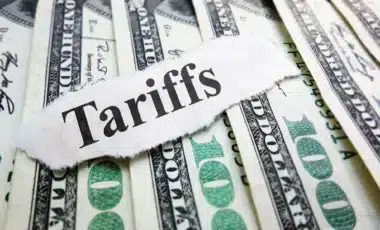US consumer confidence has hit its lowest level in four years, reflecting growing uncertainty surrounding the economy. According to a recent survey from The Conference Board, Americans are increasingly pessimistic about their financial futures, with concerns about inflation and a potential recession dominating their outlook.
The monthly confidence index dropped to 92.9, marking a significant decline from the previous month and representing the lowest figure since January 2021. This marks a dramatic shift from earlier in the year, when optimism about personal income and job security appeared to hold steady.
The drop is part of a broader trend that has seen Americans’ positive expectations for the economy weaken over the past several months.
Economic Woes Fuel Decline in Consumer Optimism
Consumer confidence is a crucial indicator of the health of an economy, as it directly influences spending behaviour.
According to The Conference Board, a decline in optimism typically leads to reduced spending on major goods such as cars, homes, and furniture — all of which are key drivers of economic activity. This, in turn, can slow down economic recovery or lead to further downturns.
The latest report highlights a significant drop in expectations for income, business conditions, and the labour market, all of which now stand at their lowest levels in more than a decade. The monthly confidence index fell by 7.2 points, while the expectations component dropped by an even steeper 9.6 points.
These sharp declines reflect a growing unease among Americans who are grappling with the potential impacts of a slowing economy and higher inflation.
“Consumers’ optimism about future income — which had held up quite strongly in the past few months — largely vanished, suggesting worries about the economy and labor market have started to spread into consumers’ assessments of their personal situations,” said Stephanie Guichard, senior economist at The Conference Board.
She further explained that this shift suggests that concerns over the broader economy and labour market are beginning to affect personal assessments.
Widespread Concern Across Demographics
The survey reveals that the decline in consumer confidence is not confined to a specific income group or age bracket. While older Americans, particularly those aged 55 and above, showed the most significant drop in confidence, people across all income levels expressed increasing concern over future economic conditions.
Additionally, the fear of inflation and the potential for a recession has created what economists refer to as “stagflation,” a situation where rising prices combine with stagnating incomes. Federal Reserve officials have echoed these concerns, warning that the economy may face significant challenges in the near future.
Despite these concerns, experts note that consumer confidence is a volatile indicator, often subject to rapid shifts in response to political, economic, or global events. Nevertheless, the current state of the index signals potential struggles ahead for an economy already facing numerous challenges.









